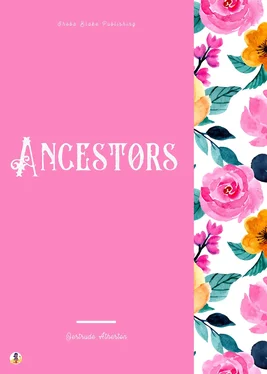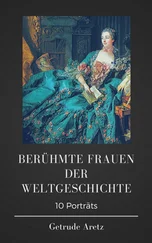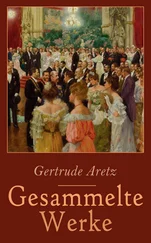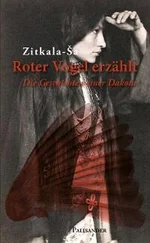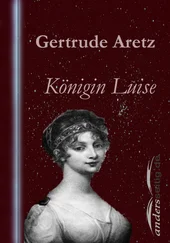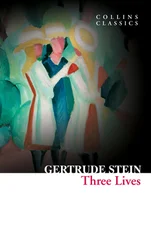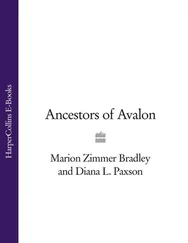Gertrude Atherton - Ancestors
Здесь есть возможность читать онлайн «Gertrude Atherton - Ancestors» — ознакомительный отрывок электронной книги совершенно бесплатно, а после прочтения отрывка купить полную версию. В некоторых случаях можно слушать аудио, скачать через торрент в формате fb2 и присутствует краткое содержание. Жанр: unrecognised, на английском языке. Описание произведения, (предисловие) а так же отзывы посетителей доступны на портале библиотеки ЛибКат.
- Название:Ancestors
- Автор:
- Жанр:
- Год:неизвестен
- ISBN:нет данных
- Рейтинг книги:3 / 5. Голосов: 1
-
Избранное:Добавить в избранное
- Отзывы:
-
Ваша оценка:
- 60
- 1
- 2
- 3
- 4
- 5
Ancestors: краткое содержание, описание и аннотация
Предлагаем к чтению аннотацию, описание, краткое содержание или предисловие (зависит от того, что написал сам автор книги «Ancestors»). Если вы не нашли необходимую информацию о книге — напишите в комментариях, мы постараемся отыскать её.
Ancestors — читать онлайн ознакомительный отрывок
Ниже представлен текст книги, разбитый по страницам. Система сохранения места последней прочитанной страницы, позволяет с удобством читать онлайн бесплатно книгу «Ancestors», без необходимости каждый раз заново искать на чём Вы остановились. Поставьте закладку, и сможете в любой момент перейти на страницу, на которой закончили чтение.
Интервал:
Закладка:
“I can’t imagine you in the working rôle of the Lady Bountiful. Last night, at least, if I had written to my friend, Anabel Colton, I should have devoted pages to your more famous attributes, but I should never have thought of this.”
“Indeed? If one could languish through life in the shell of a mere beauty that life would be a good deal simpler proposition than it is. Unfortunately there are complications, and, agreeable or not, one accepts them as one does enemies, husbands, stupid servants, and all other mortal thorns. But I am not uninterested in my people here, not by any means, and they bore me less than going to court and visiting my father-in-law. I watch them from birth, see that they are properly clothed and fed, that they go to school as soon as they are old enough, later that they find a situation here or elsewhere—those that have no work to do at home. My son gives the young men and women a complete wardrobe when they start out to win their way in life, and the details fall on me. It means correspondence, mothers’ meetings, and all that sort of thing. Even during the London season I come down once a month. Of course it is a bore, but on the whole tradition is rather kind than otherwise in making life more or less of a routine.”
“Wouldn’t you miss it if your son married?” Isabel wondered if this woman had really given her the impression of tragic secrets, unlimited capacities for both license and arrogance. In this early morning freshness there was hardly a suggestion of the woman of the world, barely of the great lady; and in the rich tones of her voice there was a genuine note of interest in her poor.
“Oh, I should always keep an eye on them; young wives have so many distractions. If I had to give them up—yes, of course it would mean a vacancy in my collection of habits; one side of me clings strongly to traditions and duty. The other—well, I’d like to be a free-lance in the world for a while—although,” she added, with a sharp intonation, “I don’t suppose I should stay away from Jack very long. It is a great relief to have a vital interest in life outside one’s self. You, of course, are not old enough to have discovered that; and, indeed, I am not always so sure that it is possible.”
Isabel did not ask her if she would not be jealous of the wife who must, if he loved her, take the greater part of all that her “Jack” had to give; she divined in this many-sided woman a quality in her attitude towards her son with which ordinary maternal affection had little in common. Her fine eyes flashed with pride at the mention of his name, and it was more than evident that he was her deep and abiding interest; but this keen and curious young student of life had never seen any one less maternal. Lady Victoria’s attitude, indeed, might as reasonably be that of a proud sister or wife. When he was beside her she looked almost commonplace in her content. The moment he passed out of her sight some phase of individuality promptly lit its torch. Last night Isabel had seen her stand for half an hour as motionless as some ivory female Colossus, only her eyes burning down with slow voluptuous fire upon an adoring little Frenchman. She had looked like a Messalina petrified with the complications and commonness of the modern world; possibly with the burden of years, Isabel had added, in girlish intolerance of the wiles of which youth is independent. She had been far from falling under her spell, although not wholly repelled by the glimpse of this worst side of a woman far too complex to be judged off-hand. This morning she liked her suddenly and warmly, and, with the lightning of instinct, divined why she worshipped her son and still was willing to have him marry and swing aside into an orbit of his own. All she needed was a certain amount of his society, opportunities to work for him, the assurance of his success and happiness. He was a refuge from herself; in his imperious demands her memory slept, her depths were stagnant. But Isabel was still too young, in spite of her own experience, more than dimly to apprehend the older woman’s attitude, and the innumerable and various acts and sufferings, disenchantments and contacts that had led up to it. Victoria seemed to her the most rounded mortal she had met, and yet with an insistent terror in the depths of her riven and courageous soul, the terror of the complete, the final disillusion. Between that moment and her too exhaustive knowledge of life stood the magnetic figure of her son, safeguarding, almost hypnotizing her. She was as incapable of jealousy as of aching vanity in the fact of a son whom the world was never permitted to forget. She had done with little things, and Isabel, with young curiosity, wondered in what convulsion the last of them had gone down.
Lady Victoria, unconscious of the analytical mind groping to conclusions beside her, was revolving the midnight comments of Flora Thangue, and her own impressions of this American relative whose sudden advent, taken in connection with her eighteenth century beauty and undecipherable quality, wrought the impression of a symbolic figure swimming out of space. Lady Victoria was far too indifferent to analyze the problems of any woman’s soul, but she was keenly alive to the vital suggestion of power in the girl, and of the strong will and intellect, the command over every faculty, evidenced in the strong line of the jaw, the stern noble profile, the calm searching gaze so difficult to sustain. None knew better than Victoria the value and rarity of a free and courageous soul. Such a woman must, when more fully developed, throw the whole weight of her character into the scales balancing for the few whom she recognized as equals and accepted as friends. If she had had “some smashing love affair,” as the more romantic Flora suggested, so much the better.
She said, with a perfectly simulated impulsiveness:
“Of course you understand that I meant what I said last evening. And not merely a week; you must pay us a long visit, if it won’t bore you. But the house will rarely be empty now that the shooting has begun, and there is always something going on in the neighborhood. Later comes the hunting, and I am sure you ride.”
“Oh yes, I ride! I have spent about half my life on a horse. I want to stay more than I can tell you, but before long I must go home. The same safe old bank that has charge of your ranches looks after my small affairs, and I have a man on the farm that has been in the family for forty years; otherwise I should never have dared to leave my precious chickens; but Mr. Colton writes me that Mac is failing, and before the rainy season commences I must look into things myself.”
“Chickens?” said Lady Victoria, much amused. “Do you raise chickens?”
“Rather; and not in the back yard, neither. I have about a thousand of the most beautiful snow-white Leghorns with blood-red combs you ever saw; and I have incubators, runs, colony-houses, and all the rest of it. They are raised on the strictest scientific principles and yield me the greater part of my income. That is the reason I feel obliged to return—if Mac is no longer able—or willing—to get up at night. One must not neglect the chicks—the little ones. I doubt if real babies are more trouble. I don’t mind telling you that I have resolved to make a fortune out of chickens, if only that I may be able to live as I should in San Francisco. But I must go back and do the greater part of the work myself.”
“Make a fortune—out of chickens! How odd that sounds! Not in the least romantic, but rather the more interesting for that. But why don’t you let your ranch for dairy and grazing purposes, as we do? They bring us in a very good income—have done, so far.”
“There are about nineteen thousand acres in Lumalitas, and some forty thousand in the southern ranch. I possess exactly three hundred and thirty-two, forty-five of which are marsh. You have now nearly the whole of the original grants, for as my father and uncle sold or mortgaged portions—and could not pay—your agents bought in. You may remember.”
Читать дальшеИнтервал:
Закладка:
Похожие книги на «Ancestors»
Представляем Вашему вниманию похожие книги на «Ancestors» списком для выбора. Мы отобрали схожую по названию и смыслу литературу в надежде предоставить читателям больше вариантов отыскать новые, интересные, ещё непрочитанные произведения.
Обсуждение, отзывы о книге «Ancestors» и просто собственные мнения читателей. Оставьте ваши комментарии, напишите, что Вы думаете о произведении, его смысле или главных героях. Укажите что конкретно понравилось, а что нет, и почему Вы так считаете.
